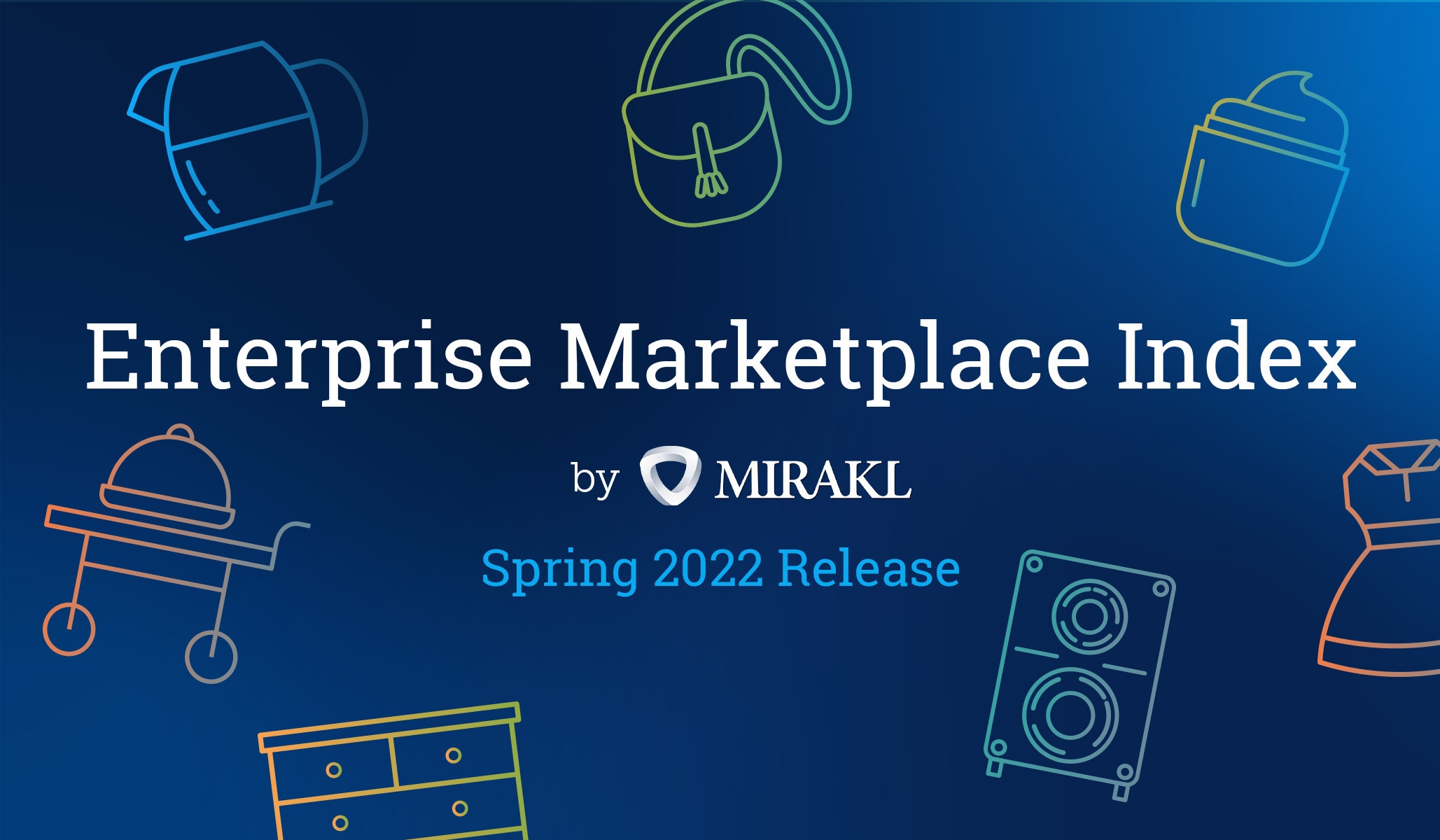New Edition of Enterprise Marketplace Index Shows Marketplaces Continue to Grow at Twice the Rate of eCommerce

Matching digital’s unprecedented rise of 2020 was no easy task, but eCommerce–and marketplaces in particular–met the challenge. For the second year in a row, enterprise marketplaces grew at double the rate of eCommerce, according to Mirakl’s just-released 2022 Enterprise Marketplace Index.
The new report, which launches today, is the only one of its kind in the industry, drawing on Mirakl’s extensive marketplace expertise and insights from launching and scaling more than 300 enterprise marketplaces across industries. The Enterprise Marketplace Index is an in-depth analysis of 60 global enterprise marketplaces, billions of dollars in gross merchandise value (GMV), 50,000+ marketplace sellers, and 70 million marketplace products. We also spoke with leading retail Platform Pioneers across regions, asking them to share their stories of marketplace growth. Their insights offer a further look into the very real impact of enterprise marketplaces.
This second edition of the Enterprise Marketplace Index provides a deeper analysis of the market and shares insights on what’s driving growth. For the first time, we’re sharing a full-year comparison, evaluating 2021 over 2020, and including two-year compound annual growth rates to show the long-term impact of marketplace strategies. Following are some of the key findings.
Loading...
Enterprise marketplaces grew 25% in 2021
Global eCommerce sales grew 12% in 2021, but enterprise marketplaces found a path to even greater heights, achieving same-site sales growth of 25%. This level of growth after 2020’s record year solidifies that marketplaces are not a temporary trend in commerce, but rather a fundamental–and permanent–shift in the ways consumers shop and retailers profitably grow their businesses. In fact, enterprise marketplaces achieved 49.7% compound annual growth (CAGR) over the past two years, compared with overall eCommerce CAGR of 22.2% over the same time period.
While retailers faced several challenges in 2021, such as supply chain disruptions and rising customer acquisition costs, enterprise marketplaces were a bright spot in the landscape. Consumers and sellers rushed to marketplaces at a record pace, driving up key marketplace growth indicators. For instance, consumers’ adoption of shopping on marketplaces increased by 35% over pre-pandemic levels: in 2019, 42% of consumers said they shopped exclusively on or a lot on marketplaces, a figure that rose to 57% in 2020 and held steady at 57% in 2021 even as physical stores reopened, according to Mirakl’s State of Online Marketplace Adoption report, which surveyed 9,000 online shoppers across the globe.
Sellers move into marketplaces at a record pace
Amid growing consumer demand, the online marketplaces included in our Index mobilized to meet demand. Their network of marketplace sellers grew significantly over the past two years. In 2021, the number of businesses that began selling on marketplaces increased by 46% over 2020. Combined with the prior year’s growth, the size of the seller network represented in the Index has doubled since Q4 2019.
This illustrates a true evolution in commerce with a transformation of value chains. Retailers are shifting from just being trend-setters to becoming more comprehensive destinations for consumers by relying on third-party sellers to support their sourcing and merchandising efforts–enabling scale and attracting sellers.
Consumers prefer shopping on marketplaces
One of the top reasons consumers prefer online marketplaces is because they offer more product selection than traditional retail sites. Products are the primary source of marketplace growth, and marketplace sellers deliver wider assortment through the products they offer. Product assortment on these established marketplaces expanded by another 29% in 2021, and as a result, they now offer 62% more products than during Q4 2019. This is one of many reasons why 79% of consumers who shop online at least once a week—the most valuable shoppers in eCommerce—identify marketplaces as the most convenient way to shop.
Discover the blueprint for marketplace growth with the 2022 Enterprise Marketplace Index
It’s become clear that marketplaces are the new normal in commerce. And with good reason: Marketplaces are attracting sellers and consumers that drive retailers’ growth profitably in an intensely competitive digital landscape.
The Enterprise Marketplace Index offers a true blueprint for marketplace growth, analyzing the strategic, operational, and merchandising initiatives that marketplace operators use to drive both growth and profitability. The Index is an objective view based on reliable benchmark data that can inform all stages of a marketplace journey, whether it’s building an initial business plan or accelerating the growth of a live marketplace.
Download the report now to gain insights what’s driving the growth of the platform economy.



